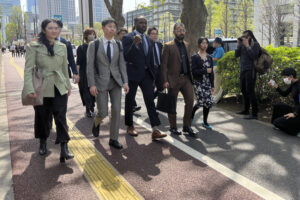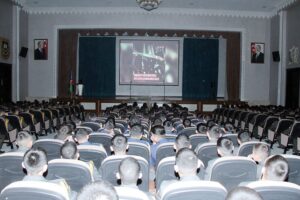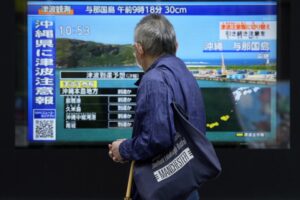Tokyo, 5 January, /AJMEDIA/
The United States is seeking to step up cooperation with Japan to encourage women to pursue science and technology, a State Department official leading gender equality efforts said Wednesday, noting that female economic empowerment will be a topic when the two countries’ leaders meet next week.
Katrina Fotovat, acting ambassador-at-large for global women’s issues, also underscored the importance of Japan, which holds the rotating presidency of the Group of Seven this year, to address its own gender inequalities, with the country ranked the lowest among the G-7 industrialized nations in a report by a Switzerland-based think tank.
She made the remarks in an interview with Kyodo News as the U.S. government released what it calls its first-ever interagency strategy to advance women’s economic security globally, outlining the areas it will focus on.
The areas include reducing wage gaps through better access to quality jobs, promoting entrepreneurship and dismantling systemic barriers to women’s participation in labor markets.
Closing the gender gap in the global workforce could unleash an additional contribution of $5.3 trillion to global gross domestic product, the strategy said, calling gender equity “central to economic development.”
The document also said women’s “economic competitiveness” could improve through access to traditionally male-dominated and higher-wage sectors including science, technology, engineering and mathematics, often referred to as STEM.
Fotovat said she is “sure” that gender equality and economic empowerment will be discussed by U.S. President Joe Biden and Japanese Prime Minister Fumio Kishida when they meet on Jan. 13 in Washington, and that the Biden administration is “hoping to build upon some of our STEM efforts with Japan.”
The White House has said the two leaders will seek to “further deepen ties” between their governments, economies and people, in addition to discussing a range of regional and global security issues such as North Korea and Taiwan.
Noting that the G-7 provides “a huge opportunity” to engage on issues related to women’s economic security, the senior official said it is “absolutely” important for Japan to improve women’s participation in areas in which it is lagging behind as it seeks to show leadership on the agenda as G-7 chair.
Japan ranked 116th among 146 countries in the World Economic Forum’s gender gap report last year, far below Italy, which was the next worst G-7 member in 63rd place.
While Japan attained high scores for access to education and health, its women’s economic participation and opportunity indicator, reflecting the share of legislative, senior and managerial positions among other factors, as well as its political empowerment indicator remained particularly low.
Iceland remained the most gender-equal country in the report, topping the ranking for the 13th consecutive year. The United States was 27th.









































